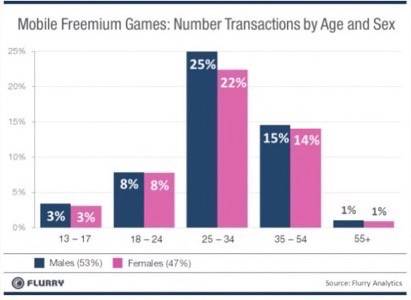Almost every company in the mobile ecosystem that is in one way or another associated with Carrier IQ right now is in a world of hurt. Is the outrage over what the data that CIQ collects justified? What some call spying, others may call pertinent, actionable data designed to improve consumers’ lives.

Is it spying or is it benign data collecting? We outline both sides below and it is the topic of this week’s ReadWriteMobile poll.
See Also:
Controversy Surrounds Data Gathering Practices of Mobile Analytics Company
It’s Carrier IQ’s World, We Just Live in It
Senator Al Franken Demands Carrier IQ Explain Mobile Tracking Software
To a certain extent, this is a hard question to answer without knowing the absolute full extent of what Carrier IQ is collecting and what it is passing on. For baseline purposes, let’s use the work of Trevor Eckhart as to the capabilities of what Carrier IQ’s source code can do. See the video below of his findings.
It is important to note that Eckhart’s findings are of what can do, not necessarily exactly is actually records and sends to its partners. Google, RIM and Nokia has all said that they do not have a partnership with CIQ. AT&T, Sprint and T-Mobile have relationships to one degree or another with the company while Verizon has stated that it does not. Samsung and HTC are both about to be sued for using CIQ on Android devices. Apple said it phased out most of CIQ capabilities in iOS5 and will eliminate the rest of the company’s capabilities later.
CIQ tried to silence Eckhart, but the Electronic Frontier Foundation and its army of lawyers stepped in and got CIQ to drop its cease-and-desist. That freed up Eckhart to create the video above that is the smoking gun in this whole issue.
For its part, CIQ has maintained that it is “not logging keystrokes or providing tracking tools.” The thing about CIQ, is that the company may say that it does not provide those things and perhaps it does not, but Eckhart’s research proves that those capabilities are present in the source code. What is stopping CIQ from using that information on a case-by-case basis perhaps at the request of a law enforcement agency that wants to track suspicious people without their consent? It is like having a barrel of fireworks with a pyromaniac nearby and telling him he can use the sparklers but not the cherry bombs. The potential use the tools is ever present because it exists in the first place.
As our Marshall Kirkpatrick notes, we could all become victims of our own data. Any time we perform an action on an Internet connected device, in one way or another that data is being created and logged. Whether that is for temporary functionality purposes or for the edification of the carriers, developers, manufacturers or marketers depends on the nature of the data. Detailed data is an extraordinarily valuable commodity.
When it comes to mobile analytics, there are a ton of options that developers can use to get actionable data that informs publishing decisions, upgrade cycles, in-app events and more. Developers have tools available to them to know exactly when a certain user visits and app, how long they are in that app, what they did in that app and can tie it to general demographic data points like age and gender. Look at all the stories from a company like Flurry that break down app usage by gender and age. The fact of the matter is that companies have data on your behavior no matter what you do. Carrier IQ is different because of the nature of the data collected and how it is being harvested and whether or not it has actual root access to the kernel of a device.

Ask yourself: is what Flurry does spying or actionable data? Now, think of the base concept of what CIQ does and weigh the potential benefits and detriments of the company’s approach. Is it spying or it is actionable data? Vote in the poll below.




















